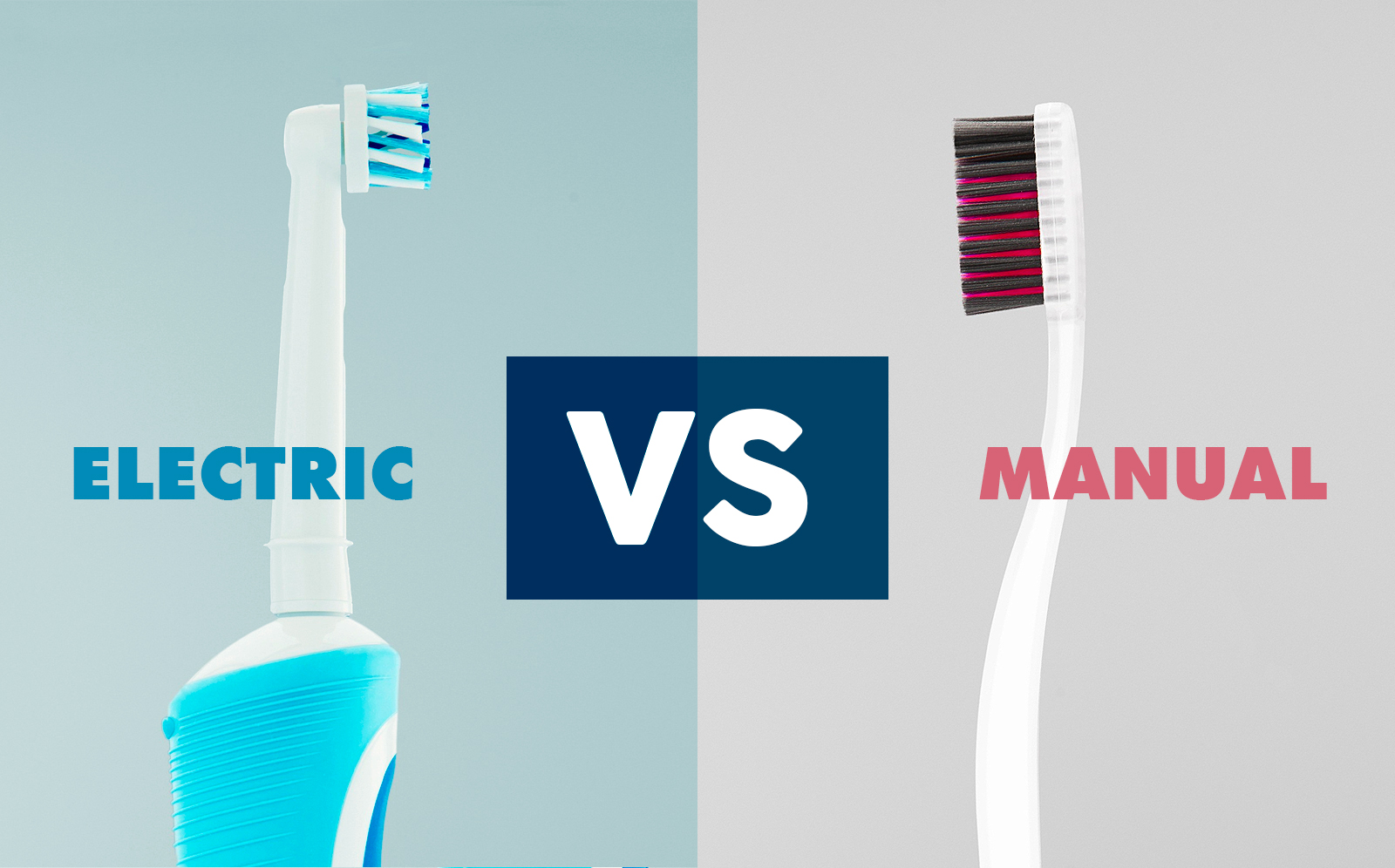
There has long been debate about whether electric or manual toothbrushes reign supreme when it comes to what’s best for oral hygiene.
Those in favor of manual brushing allege that being able to fully control the brush better allows the user to reach difficult spots. Those on Team Electric Toothbrush swear that the subtle vibrations, pressure indicators, and moving bristles will ensure the optimal clean.
So, what is the truth? We’ve gathered the top factors to consider when it comes to choosing your toothbrush, hopefully settling the score once and for all:
1. Cost
Of course, it’s no secret that electric toothbrushes tend to be a bit pricier than their manual counterparts. However, as electric brushes become increasingly mainstream, they are certainly becoming less expensive in general. When considering cost, one should consider what exactly it is they’re paying for. Most electric brushes are capable of about 30,000 brushstrokes per minute, whereas most people using manual brushes average at around 200 strokes. If you consider the cost per brush stroke, electric brushes actually cost less.
In addition to this, studies scrutinizing the efficacy of electric toothbrushes show that electric users have better oral health than the manual crowd; the potential savings on dental cleanings and oral health related problems is astronomical!
2. Usability
In terms of usability, electric brushes have some distinct advantages. Kids (and adults!) benefit from electric brushes with a built-in timer, which help them brush the right amount of time. The elderly or arthritic can receive a deep, thorough, clean using an electric brush with minimal movement or effort. Overzealous brushers who irritate their gums by applying too much pressure will benefit from electric models featuring a pressure gauge alert.
While these factors might not necessarily matter for diligent teeth-brushers, electric brushes certainly provide the ease-of-use advantage for people with (and without) specific needs.
3. Portability
In this arena, manual brushes clearly come out on top. When traveling, a manual brush (which tend to be smaller than their electric cousins) can be thrown into a toiletry bag without a second thought. If they’re accidentally left behind, their relatively low cost makes them easy to replace. If you’re considering an electric toothbrush, it might be worth keeping a manual brush for when you travel.
4. Clean
Here’s where the case for manual breaks down. Of course, some very diligent brushers get by just fine using a manual toothbrush, whereas others could use the help of rotating bristles. In the end, the results don’t lie: Overall, people who use electric brushes have less plaque buildup, better gum health, and reduced staining.
Overall, hygienists and dentists agree that most patients’ oral health would benefit from electric brushing, for no reason other than the fact that machines are often capable of things that the human body is not!
Regardless of what kind of toothbrush you use, you won’t see any benefit without regular, attentive brushing. To find out how you’re doing with your individual brushing, or even to find out more about electric brushes, don’t hesitate to contact us today.

